Meet the Chinese disabled woman who battled adversity to build a leading business
- Yu Lina was a qualified accountant with more than a decade of experience but couldn’t convince employers to give her a job when she moved cities
- So she took a chance and set up her own company, going on to become a market leader in her city
Businesswoman Yu Lina is a keen international traveller and has visited dozens of countries. Photo: Yu Lina
A brief news report about a promising career 16 years ago changed the life of Yu Lina.
In the eastern Chinese city of Hangzhou, Yu, who has walked with the aid of crutches since she contracted polio as a three-year-old, read that stenographers were in high demand and could command high hourly rates thanks to a boom in conferences.
Yu had a degree and extensive experience in accounting but had been struggling for months to find a job after moving to the city with her parents.
The article opened a door of hope.
She bought a stenotype machine and some textbooks and spent the next six months teaching herself how to transcribe speeches on the equipment.
She then decided to set up a company providing stenographic services. Today, Hangzhou Gold Finger Stenography Service is a leading player in the industry in Zhejiang province, with clients ranging from government departments to big companies.
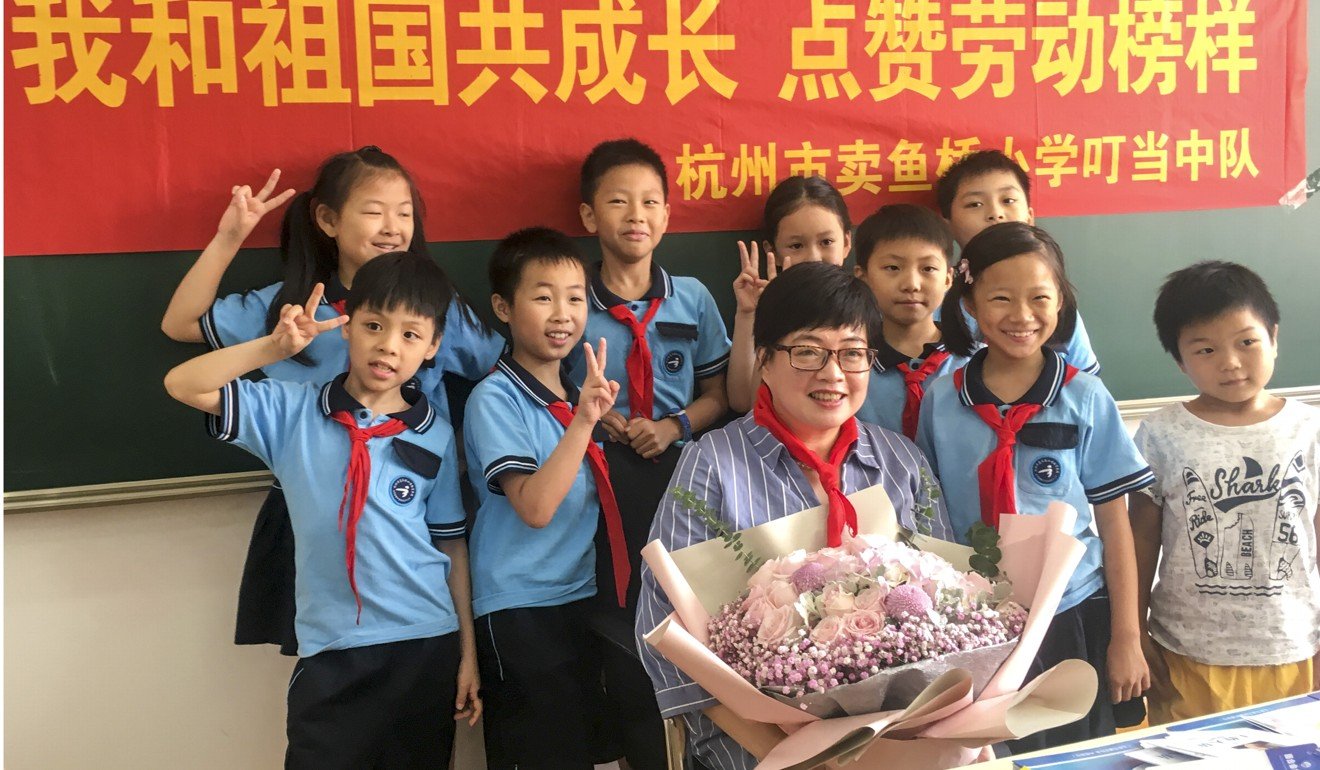
Yu Lina takes her message to a primary school. Photo: Yu Lina
Yu not only supports herself, but also employs about 20 women – so far no man had applied for a job at her company, she said. She is also secretary general of the Hangzhou Disabled Entrepreneurs Association.
“The reason for my company’s success is persistence and aspiration for high standard in our service,” she said.
“There is no difference between disabled entrepreneurs and non-disabled entrepreneurs. They both face fierce market competition.”
Yu was born in 1967 in Quzhou, a small city in Zhejiang where her parents worked as engineers.
Her parents wanted her to have an education but because of her physical disability, many primary and middle schools rejected her.
“They thought I would bring them trouble and ‘suggested’ that I not go to their school,” she said.
But Yu’s mother and father were persistent.
“I am grateful for my parents. They gave me a complete sense of security,” Yu said. “The most important thing is that they never gave up on sending me to school.
“[For a long time] my days were dark and I didn’t see any hope.
“Despite all the adversity, I believed that since I couldn’t do anything else, the only thing I could do was to study.”
Yu went on to complete her secondary education and gained a place at Zhejiang University of Finance and Economics, where she majored in accounting. After graduating, she was employed as a clerk in the finance department at the company where her parents worked, rising over the next decade or so to become its finance manager.
But in 2003, her parents retired and moved to their hometown of Fuyang, near Hangzhou. With no one to take care of her in Quzhou, Yu quit her job and left with them, too.
Yu said she spent months hunting for a job, getting rejection after rejection despite her qualifications.
She said employers were deterred by her disability, an attitude that was common at the time.
And that’s when Yu embarked on her new career.
With a hectic work schedule, Yu said part of her company’s business is to train court staff and vocational schools students in stenography.
It’s a skill that requires a broad range of knowledge, given the hundreds of conferences held in Hangzhou every year on subjects ranging from urban planning to medicine.
“Also, when transcribing speeches, you will come across people who speak with a dialect or do things like invert sentences. So it’s a job that builds on experience,” she said.
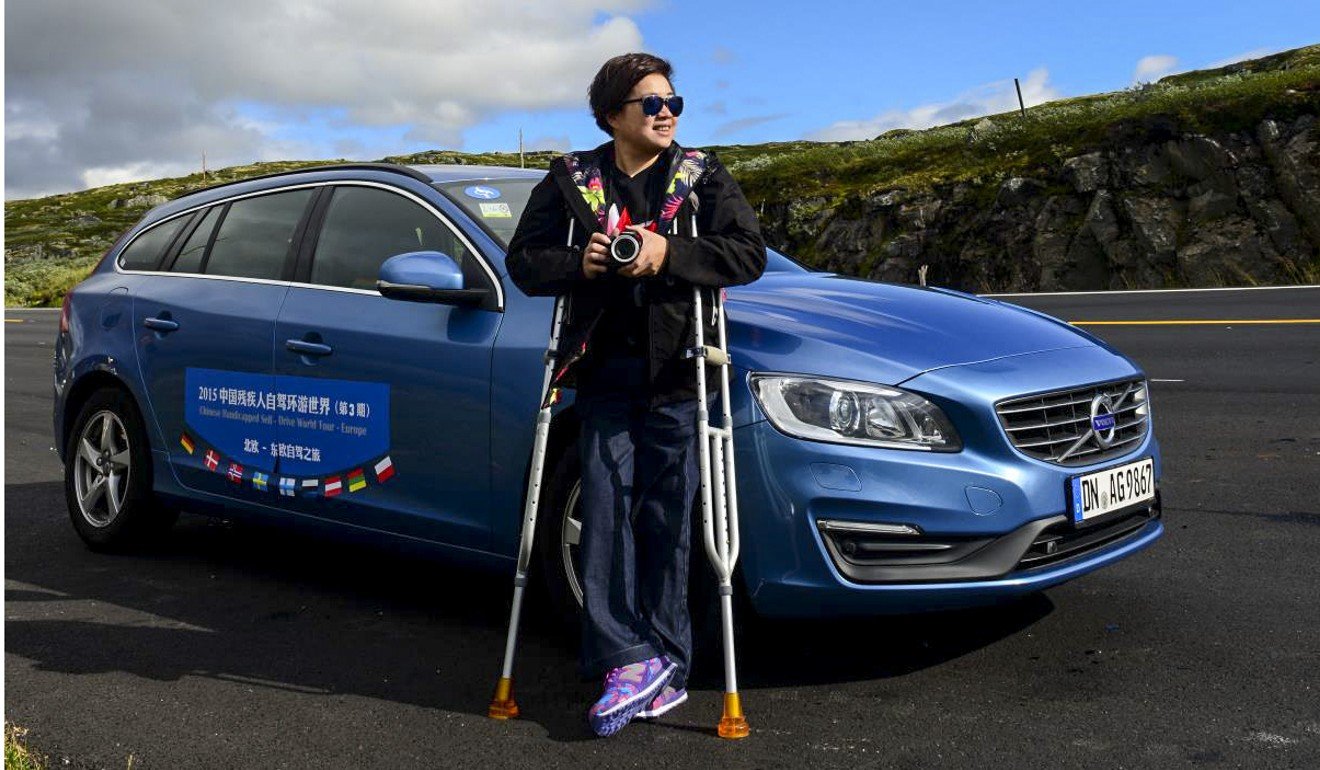
Yu drives a modified car, using her hands to manipulate the accelerator and brake. Photo: Yu Lina
Away from the office, Yu is a keen traveller. In 2010, she was one of the first people in China to qualify for a special driving licence for the disabled. She now drives a modified car, using her hands to manipulate the accelerator and brake.
She has travelled to more than 30 countries with her friends. “It’s easy to rent modified cars in Western countries where the social environment is more friendly for disabled people.”
One of her big concerns is the difficulties disabled people in general face in their everyday life.
She said disabled people often did not leave home to interact with other people, and faced discrimination in public.
“There are still barriers in many places. If there were more [accessible] facilities, disabled people would come out more. It’s good for them to integrate with the society,” Yu said.
“My goal is to live well every day,” she said. “I don’t have any idol. I just try to be nice to everybody I meet and try my best on every task. I believe tomorrow will be better.”



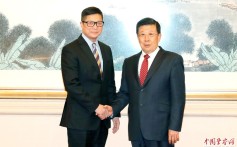





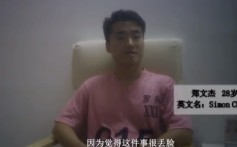
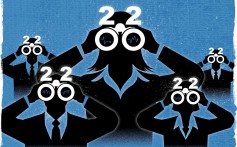

Comments